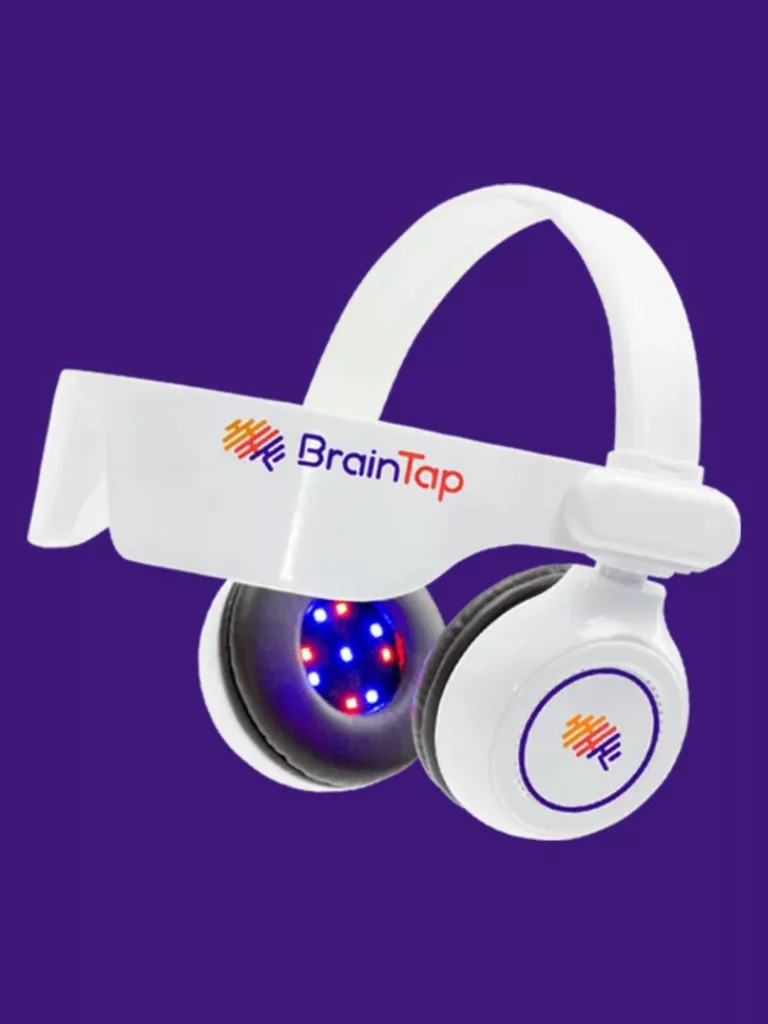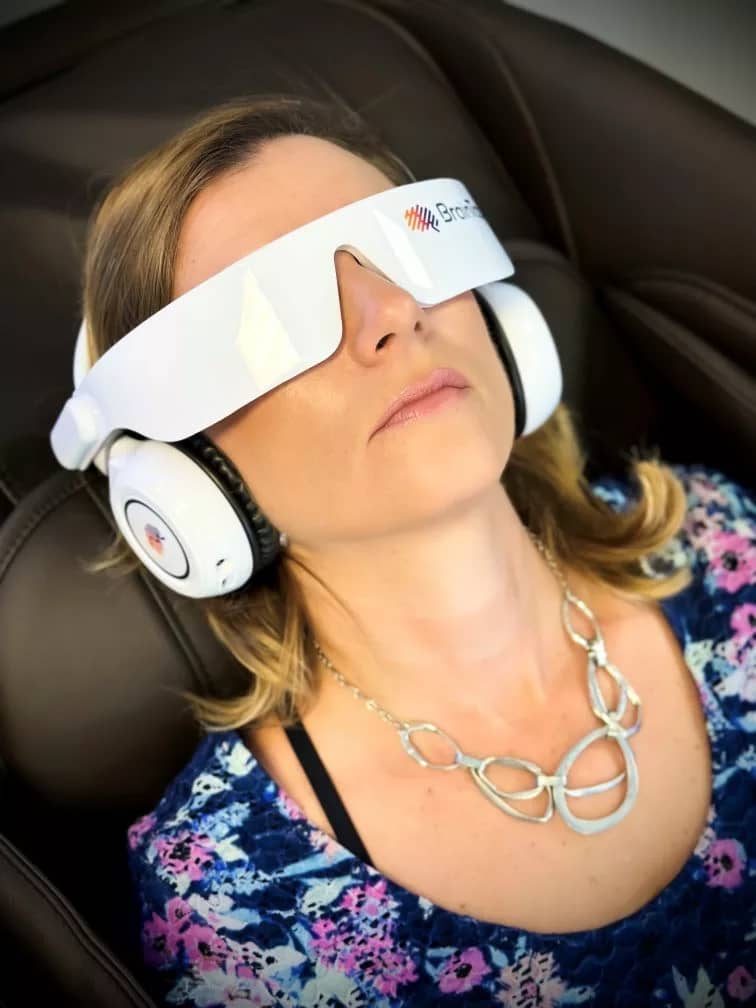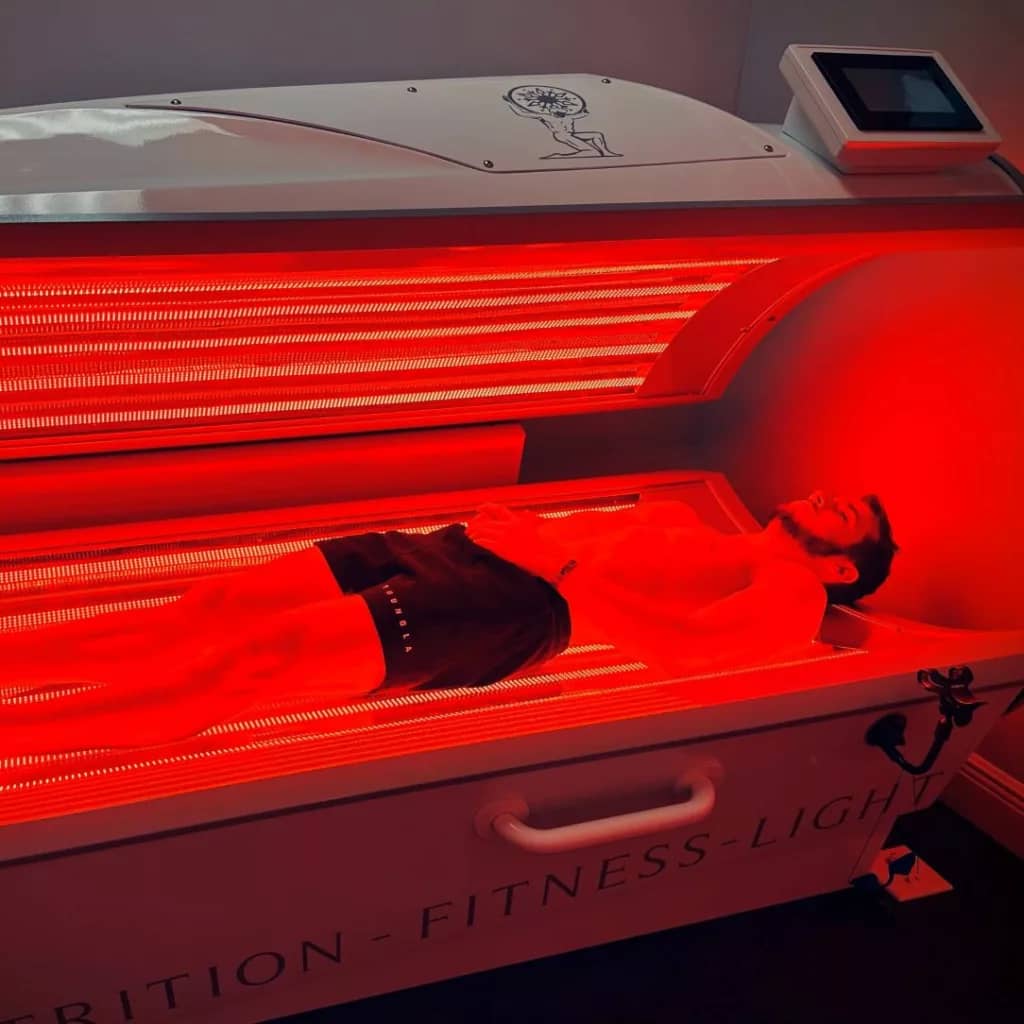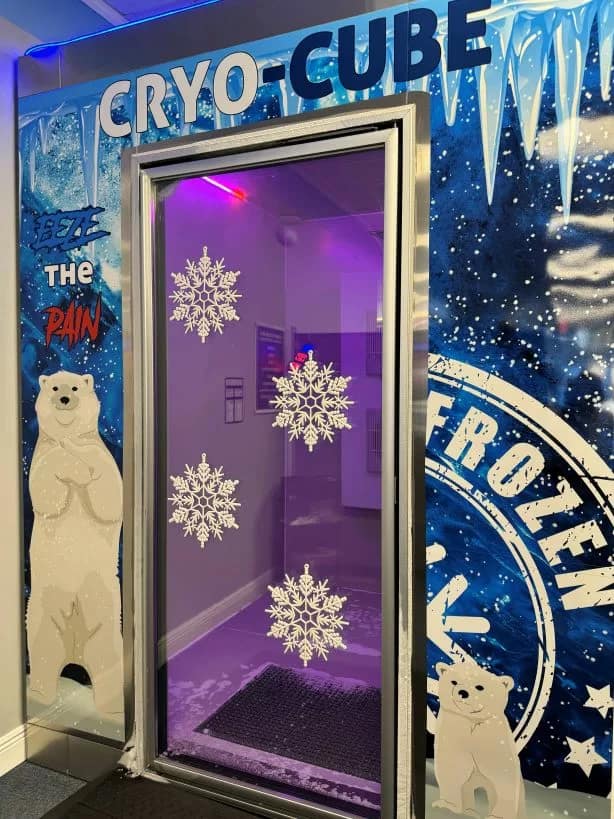Stress Reduction and Sleep Quality
Ignoring stress or failing to manage it effectively can lead to headaches, sleep problems, digestive issues, cardiovascular disease, and even weaken your immune system. How to avoid it?
Your Brain Fitness
Manage Stress Levels with BrainTap
BrainTap combines light and sound technology to guide users into a state of relaxation or meditation. What could be more effective for stress reduction than reaching a state where you are completely disconnected from all your concerns?
BrainTap offers specific features tailored to reduce stress, including:
- Stress Reduction Programs: Customizable programs designed to target stress, helping you relax and unwind.
- Quick Sessions: Even if you’re short on time, BrainTap offers quick sessions that can help you de-stress in just a few minutes.
Whether you’re dealing with the seasonal blues or simply need a quick mental reset amid the holiday chaos, BrainTap is designed to cater to your specific needs!


Revolutionize Your Sleep Hygiene
Sleep Smarter with BrainTap
Are you struggling with restless nights and groggy mornings? Don’t miss the chance to unlock the secret to restful sleep and rejuvenated mornings!
Enter BrainTap, a groundbreaking technology that promises not just to improve but to revolutionize your sleep hygiene.
Utilizing a unique blend of light and sound therapy, BrainTap offers a scientifically-backed, ethical approach to enhancing your sleep quality. No more dependency on sleep medications with dubious long-term effects or struggling with inconsistent sleep routines. With BrainTap, you have a reliable, effective, and most importantly, ethical solution at your fingertips.
Jumpstart Your Recovery
promote natural production of melatonin with Red Light Therapy
Exposure to red light during specific times of the day helps regulate the body’s internal clock, promoting the natural production of melatonin — the hormone responsible for inducing sleep. Incorporating red light therapy into a regular routine may aid in establishing a healthy circadian rhythm, making it an attractive option for those seeking to improve both the quality and duration of their sleep.
The therapy’s anti-inflammatory effects are noteworthy in the context of stress and sleep. Chronic inflammation is often linked to stress-related conditions and sleep disturbances. Red light therapy’s capacity to reduce inflammation not only contributes to physical well-being but also addresses a potential underlying factor in stress and sleep challenges.
At our wellness and recovery center, we have different modalities based on red and near infrared light therapy. Explore each of them to understand what works better for your needs!


Release Endorphins, Serotonin, and Norepinephrine
Create a physiological environment for restful sleep with Cryotherapy
Cryotherapy, known for its application of extremely low temperatures to the body, has emerged as a holistic approach to stress management with potential benefits extending to improved sleep. The rapid exposure to subzero temperatures during cryotherapy sessions triggers a physiological response that goes beyond the immediate sensation of cold. The release of endorphins, often referred to as ‘feel-good’ hormones, helps combat stress and induces a sense of well-being. This natural mood enhancement can have positive implications for managing daily stressors and promoting a more relaxed mental state.
Moreover, cryotherapy’s impact on the autonomic nervous system plays a crucial role in stress reduction. By fostering parasympathetic activity and mitigating sympathetic ‘fight or flight’ responses, cryotherapy contributes to overall stress resilience. This adaptogenic effect not only aids in immediate stress relief but also fosters long-term resilience against the cumulative impact of chronic stress.
Quality sleep is intricately linked to stress levels, and disruptions in sleep patterns can exacerbate stress. Cryotherapy’s ability to modulate the release of neurotransmitters, including serotonin and norepinephrine, may play a role in promoting relaxation conducive to improved sleep. The reduction in inflammation and the release of endorphins during cryotherapy sessions create a physiological environment that supports a smoother transition into restful sleep.
